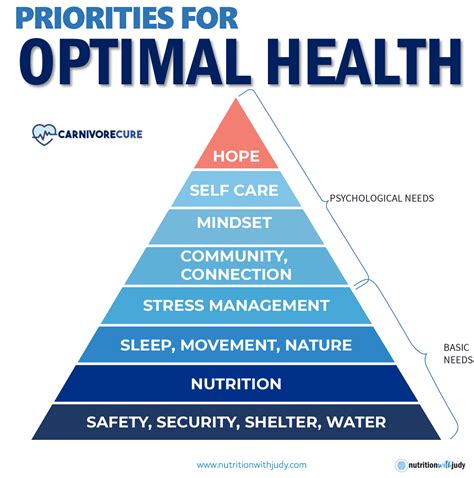What optimal protein timing maximizes muscle gain & recovery for peak male performance?

The Crucial Role of Protein in Male Performance
For men striving for peak physical performance, whether in the gym, on the field, or simply in daily life, protein is a non-negotiable macronutrient. It’s the fundamental building block for muscle tissue, enzymes, hormones, and nearly every cell in the body. Beyond its structural role, protein plays a critical part in muscle repair, growth, and overall recovery from strenuous activity. Adequate protein intake is essential not just for building impressive musculature but also for maintaining strength, preventing muscle loss, and supporting a robust metabolism.
While the overall daily protein intake is undeniably important, the strategic timing of when you consume that protein has garnered significant attention. The question isn’t just ‘how much,’ but ‘when’ – a nuance that can potentially unlock greater gains in muscle mass and accelerate recovery processes, ultimately contributing to superior physical conditioning and performance.

Debunking the “Anabolic Window”: Myth or Reality?
For years, fitness enthusiasts and bodybuilders rigidly adhered to the concept of an ‘anabolic window’ – a very narrow timeframe, typically 30-60 minutes immediately post-workout, during which protein consumption was deemed absolutely critical for maximizing muscle protein synthesis (MPS) and minimizing muscle breakdown. Missing this window, it was believed, would severely compromise gains.
While the idea of a post-workout protein boost still holds merit, modern scientific understanding has broadened this perspective. Research now suggests that the ‘anabolic window’ is far more expansive than previously thought. It’s less of a fleeting moment and more of a prolonged period, especially for individuals who have consumed protein prior to their workout. The body remains primed for nutrient absorption and muscle repair for several hours after training, meaning you don’t necessarily need to rush to chug a shake the moment your last rep is done. However, this doesn’t diminish the importance of consistent protein intake; it merely provides a more flexible approach to timing.
Strategic Protein Timing: When to Fuel Your Gains
Pre-Workout Protein: Setting the Stage
Consuming protein before a workout can be highly beneficial. A protein-rich meal or snack 1-3 hours prior to training provides a steady supply of amino acids to your muscles throughout your session. This helps to reduce muscle protein breakdown during exercise and can even enhance muscle protein synthesis post-workout. Combining protein with carbohydrates pre-workout is an excellent strategy to ensure both energy and muscle protection.
Post-Workout Protein: The Recovery Accelerator
Despite the broader ‘anabolic window,’ consuming protein post-workout remains a highly effective strategy for accelerating recovery and muscle growth. After exercise, your muscles are damaged and depleted, making them highly receptive to nutrients. A fast-digesting protein like whey, ideally combined with carbohydrates, can quickly deliver amino acids to kickstart the repair process, replenish glycogen stores, and promote muscle protein synthesis. Aim for this meal or shake within 1-2 hours after intense training.

Protein Before Bed: Sustaining Anabolism
The body undergoes significant repair and growth processes during sleep. Consuming a slow-digesting protein, such as casein, before bed can provide a sustained release of amino acids throughout the night. This helps to prevent muscle protein breakdown during your fasting period, keeping your body in an anabolic (muscle-building) state for longer, which is particularly beneficial for muscle gain and recovery.
Total Daily Intake vs. Timing: A Holistic View
While timing has its advantages, it’s crucial to emphasize that total daily protein intake remains the most critical factor for muscle gain and recovery. If your overall protein consumption is inadequate, even perfectly timed protein won’t yield optimal results. For men actively training, a common recommendation is to consume between 1.6 to 2.2 grams of protein per kilogram of body weight per day. This amount ensures sufficient amino acids are available to support muscle repair and growth.
The best approach is to distribute this total daily protein intake relatively evenly across 3-5 meals throughout the day. This consistent supply helps to maximize muscle protein synthesis opportunities and maintain a positive nitrogen balance, essential for continuous muscle repair and adaptation.

Choosing Your Protein: Types and Amounts
Protein Sources
- Whey Protein: Fast-digesting, ideal for post-workout due to its rapid amino acid delivery and high leucine content (a key amino acid for MPS).
- Casein Protein: Slow-digesting, excellent for sustained amino acid release, making it suitable before bed or between meals.
- Complete Animal Proteins: Meat (chicken, beef, fish), eggs, dairy – contain all essential amino acids and are highly bioavailable.
- Plant-Based Proteins: Soy, pea, rice, hemp – can be excellent sources, often best combined to ensure a complete amino acid profile, especially for vegans/vegetarians.
Recommended Daily Intake
For active men aiming for muscle gain and optimal recovery, targeting 0.7 to 1.0 grams of protein per pound of body weight (or 1.6 to 2.2 grams per kilogram) is a good general guideline. This should be adjusted based on training intensity, body composition goals, and individual response.

Putting It All Together: Practical Recommendations
- Spread your protein: Aim for 20-40g of protein per meal, 3-5 times a day.
- Pre-workout: Consume a meal with protein and carbs 1-3 hours before training.
- Post-workout: Prioritize a protein (especially whey) and carb rich meal or shake within 1-2 hours after training.
- Before bed: Consider a slow-digesting protein (like casein) or a high-protein snack.
- Prioritize whole foods: Build your diet around lean meats, fish, eggs, dairy, and legumes, supplementing with protein powders as needed.
- Hydration: Don’t forget water intake, which is critical for all metabolic processes including protein synthesis.
Conclusion: Fueling Your Peak Potential
While the overall quantity of daily protein intake remains paramount, strategic protein timing can provide an extra edge for men seeking to maximize muscle gain, accelerate recovery, and achieve peak physical performance. By intelligently distributing protein throughout the day, particularly around workouts and before sleep, you can optimize your body’s anabolic environment, supporting continuous muscle repair and growth. Remember, consistency, quality protein sources, and listening to your body’s individual needs are key to unlocking your full potential.









